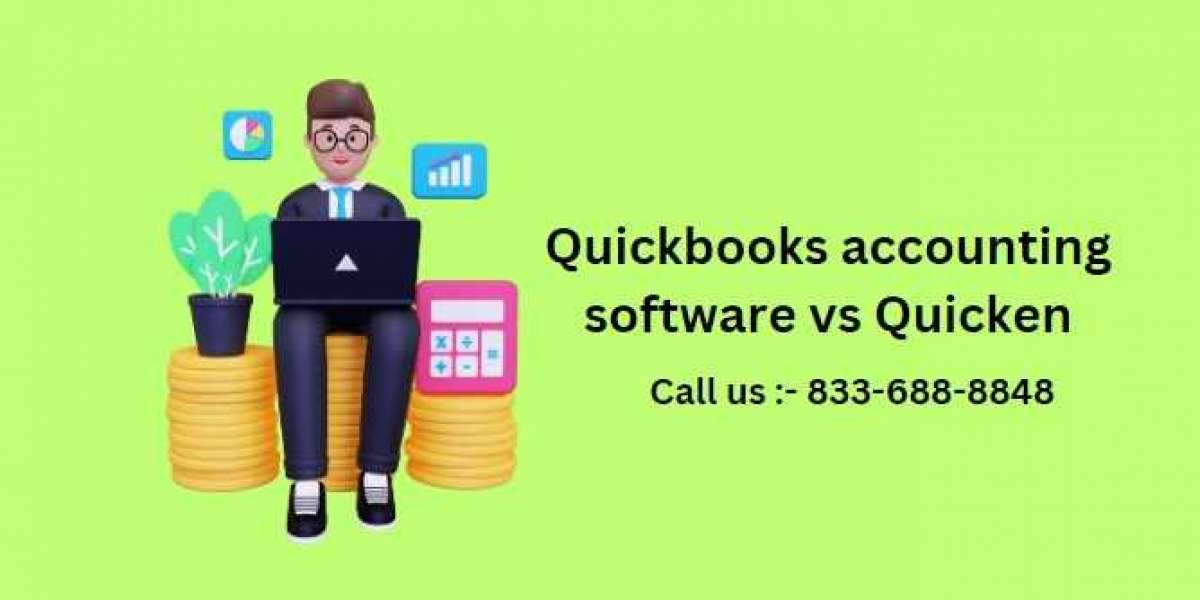When it comes to managing finances, both QuickBooks and Quicken are popular choices. However, they cater to different needs and types of users. In this blog, we’ll dive into the key differences between Quickbooks accounting software vs Quicken, helping you determine which accounting software is the best fit for your business or personal financial management.
QuickBooks: A Deep Dive
QuickBooks is a robust accounting software primarily designed for small and medium-sized businesses. It offers a wide range of features that help business owners manage finances, track expenses, and generate detailed financial reports.
Key Features of QuickBooks:
- Invoicing and Billing: Create customized invoices, track payments, and send reminders to clients.
- Expense Tracking: Automatically import and categorize expenses from linked bank accounts and credit cards.
- Payroll Management: Easily process payroll for employees, handle tax calculations, and file payroll taxes.
- Inventory Tracking: Track product inventory, sales, and purchase orders for businesses that sell physical goods.
- Financial Reporting: Generate comprehensive reports such as profit and loss statements, balance sheets, and cash flow reports.
- Multiple Users: Allows multiple users to collaborate and work on the same account, ideal for growing businesses.
Who Should Use QuickBooks?
- Small and Medium-Sized Businesses: QuickBooks is ideal for business owners who need advanced features for managing employees, tracking expenses, and generating reports.
- Freelancers and Contractors: QuickBooks offers specific tools for those managing their own businesses, including expense tracking and tax preparation.
Pros of QuickBooks:
- Extensive business management tools
- Cloud-based access with QuickBooks Online
- Multiple integrations with other business apps
- Scalability as your business grows
Cons of QuickBooks:
- More expensive than Quicken, especially for advanced versions
- Can have a learning curve for beginners
- Too complex for personal finance management
Quicken: A Deep Dive
Quicken is primarily designed for individuals looking to manage their personal finances. It offers fewer business-oriented tools than QuickBooks but provides a user-friendly interface for tracking household budgets, investments, and bills.
Key Features of Quicken:
- Budgeting: Create personal budgets, track income and expenses, and set financial goals.
- Investment Tracking: Monitor your investment portfolio, track stock performance, and view investment trends.
- Bill Management: Keep track of due dates, schedule payments, and manage recurring bills.
- Debt Management: Track loans, credit cards, and debts to ensure timely payments.
- Tax Preparation: Automatically categorize expenses for tax purposes and integrate with TurboTax for easier tax filing.
Who Should Use Quicken?
- Individuals and Families: Quicken is best suited for people managing personal finances, home budgets, and investments.
- Real Estate Investors: Quicken’s property management features make it ideal for landlords who want to track rental properties and income.
Pros of Quicken:
- Affordable pricing for personal finance management
- Simple and easy-to-use interface
- Comprehensive tools for tracking personal budgets and investments
- Great for real estate investors and managing rental properties
Cons of Quicken:
- Limited business features compared to QuickBooks
- No payroll or inventory management capabilities
- Less flexibility for businesses with multiple users or more complex accounting needs
Key Differences Between QuickBooks and Quicken
| Feature | QuickBooks | Quicken |
|---|---|---|
| Target Audience | Small and medium-sized businesses | Individuals, families, and real estate investors |
| Invoicing | Advanced invoicing and billing capabilities | Basic invoice creation (for property managers) |
| Expense Tracking | Detailed business expense tracking | Personal finance tracking |
| Payroll Management | Full payroll processing | Not available |
| Inventory Management | Yes, for product-based businesses | Not available |
| Financial Reporting | Comprehensive business financial reports | Basic personal finance and investment reports |
| Multiple Users | Supports multiple users | Single user |
Which One Should You Choose?
Choose QuickBooks if:
- You run a small to medium-sized business and need robust accounting tools for managing finances, tracking expenses, and handling payroll.
- You need multiple users to access the software.
- You require detailed financial reporting for your business.
Choose Quicken if:
- You’re looking to manage personal finances or investment portfolios.
- You want an easy-to-use tool for budgeting, bill management, and debt tracking.
- You own rental properties and need a simple way to manage real estate income and expenses.
Conclusion
Both QuickBooks and Quicken have their strengths, but they serve different purposes. QuickBooks is the clear choice for businesses needing advanced accounting and payroll features, while Quicken is perfect for individuals seeking to manage personal finances or rental properties. Understanding your specific needs will help you choose the right software for better financial management.
Read More : Accounting and Bookkeeping Services







